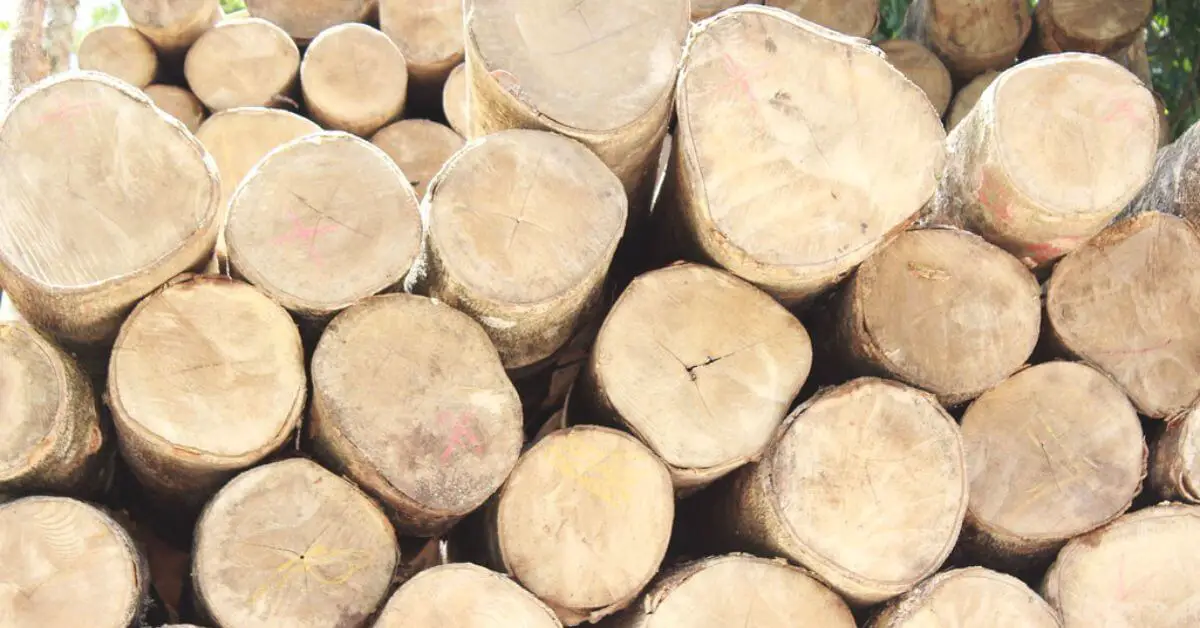What is Gmelina Wood?
Gmelina wood refers to wood obtained from the Gmelina Arborea tree, commonly known as beechwood, Gmelina, Goomar teak, Kashmir tree, Malay beechwood, white teak, and Yamane.
Gmelina Arborea is a fast-growing deciduous tree species native to Southeast Asia and parts of Africa. It belongs to the family Lamiaceae (mint family).
Gmelina wood is mainly used for pulpwood, plywood, and all kinds of lightweight construction due to its light, soft, and light-colored properties.
The properties of Gmelina Wood
Appearance
The heartwood of Gmelina can range in color from pale yellow to golden brown, and the sapwood varies from light yellow to almost white. It has straight and uniform grain.
Wood color depends on many factors, such as the age of the wood conditions in which it was grown and processed.
Workability
Gmelina Wood is easy to work with because of its low density and hardness. Although wood has straight grains, sometimes there can be irregular grains too, which can be challenging.
Hardness
Gmelina wood is a softwood with a Janka hardness value of 363 kg. American elm has 376 kgf, and loblolly pine has 313 kgf.
Gmelina Wood Advantages and Disadvantages
Advantages
- Attractive Appearance: Gmelina is light to golden brown. This makes it an ideal choice for interior design and decorative applications.
- Fast Growth: Gmelina trees grow and mature rapidly, making them a sustainable source of timber in a relatively short period compared to some other hardwood species.
- Ease of Working: Wood is easy to work with hand and machine tools, making it ideal for shaping, carving, and finishing.
- Accepts Finishes Well: Gmelina wood is easy to finish; it takes stain, paint, and finish very well.
- Affordable: Compared to other hardwoods, Gmelina wood is often more economical, making it a good choice for the pulp industry.
- Availability: Gmelina wood is readily available in the local and online markets.
- Versatility: Wood can be used for various applications, such as furniture, cabinetry, paneling, and more.
Disadvantages
- Not Durable: Gmelina wood is rated moderately durable, so it is not considered suitable for heavy construction. Wood has low strength and suitability.
- Not Rot resistant: It is not naturally rot resistant, generally not recommended for outdoor or exposed applications due to its susceptibility to weathering and decay.
- Warping and Shrinkage: Gmelina wood is prone to warping, twisting, and shrinkage when not properly dried and treated.
Gmelina Wood Uses
Because of its low density, Gmelina is one of the popular woods for carvings, sculptures, and handicrafts.
Gmelina wood is often used for various light woodworking projects such as furniture, veneers, and musical instruments.

